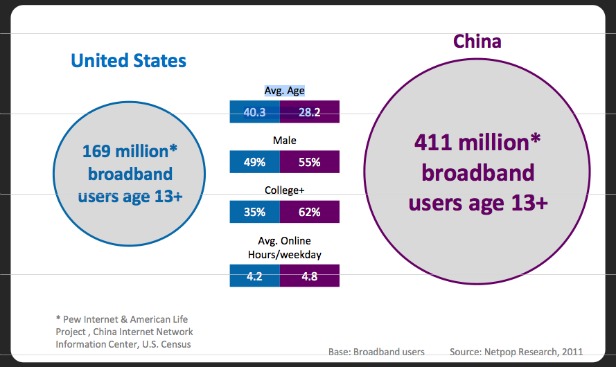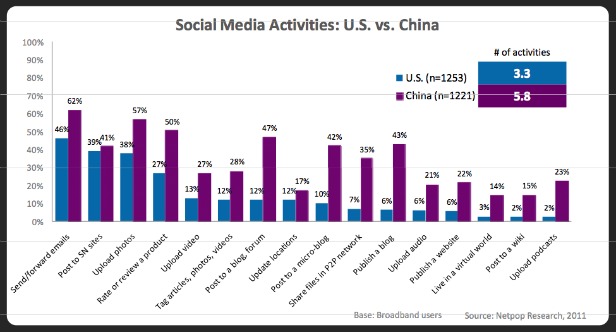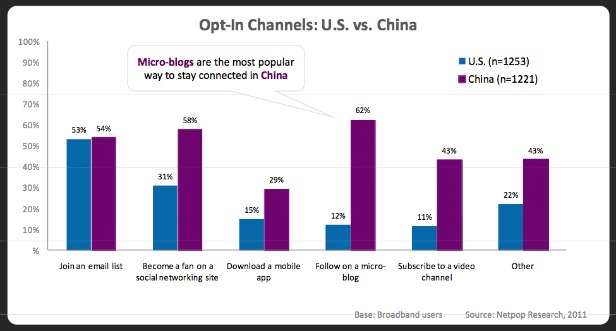Every year, the United States government releases a report on the state of human rights around the world. This year, like many others, the United States called out China for various wrongdoings – one such problem being “The Great Firewall” that restricts Chinese citizens’ access to the internet in astoundingly far-reaching ways.
This year, China’s Information Office of the State Council published a report titled “The Human Rights Record of the United States in 2010” as a sort of response to American criticisms of its own practices.
The report indicates that the Chinese government believes the U.S. is not practicing what they preach. China says that the U.S. has no business being the human rights cop of the world. From the report:
United States has a dismal record on its own human rights and could not be justified to pose as the world’s “human rights justice”. However, it released the Country Reports on Human Rights Practices year after year to accuse and blame other countries for their human rights practices. The United States ignores its own serious human rights problems, but has been keen on advocating the so-called “human rights diplomacy”, to take human rights as a political instrument to defame other nations’ image and seek its own strategic interests.
The Chinese report pitches a wide net over many human rights issues, from poverty to the killing of civilians in Afghanistan. After reading the lengthy report, much of it seems like a mishmash of Googled facts, thrown together out of context to prove a point. In lashing out at the United States’ protection of childrens mental health, the report pulls from six different sources and includes some questionable statistics: up to 93% of American children are victims to traumatic experiences, such as sexual abuse and neglect and that 93,000 children are “incarcerated.”
This doesn’t mean that some things in the report aren’t absolutely true, such as the prevalence of gender discrimination and the persistence of unemployment and poverty – but much of the report feels like kitchen-sink accusations and thin-air statistics.
The accusation train interestingly makes a few stops at technological issues, such as unwarranted seizure of electronic devices, which ars technica points out is a real concern:
Citizen’ s privacy has been undermined. According to figures released by the American Civil Liberties Union (ACLU) in September 2010, more than 6,600 travelers had been subject to electronic device searches between Oct 1, 2008 and June 2, 2010, nearly half of them American citizens. A report on The Wall Street Journal on Sept 7, 2010, said the Department of Homeland Security (DHS) was sued over its policies that allegedly authorize the search and seizure of laptops, cellphones and other electronic devices without a reasonable suspicion of wrongdoing. The policies were claimed to leave no limit on how long the DHS can keep a traveler’ s devices or on the scope of private information that can be searched, copied or detained. There is no provision for judicial approval or supervision.
Next up is an attack on America’s internet freedom. Although the Chinese report is trying to make a point about American hypocrisy, I would just refrain from even talking about internet freedom if I were them. <Pot, meet Kettle>
While advocating Internet freedom, the US in fact imposes fairly strict restriction on cyberspace. On June 24, 2010, the US Senate Committee on Homeland Security and Governmental Affairs approved the Protecting Cyberspace as a National Asset Act, which will give the federal government “absolute power” to shut down the Internet under a declared national emergency. Handing government the power to control the Internet will only be the first step towards a greatly restricted Internet system, whereby individual IDs and government permission would be required to operate a website (Prison Planet.com, June 25, 2010). The United States applies double standards on Internet freedom by requesting unrestricted “Internet freedom” in other countries, which becomes an important diplomatic tool for the United States to impose pressure and seek hegemony, and imposing strict restriction within its territory. An article on BBC on Feb 16, 2011 noted the US government wants to boost Internet freedom to give voices to citizens living in societies regarded as “closed” and questions those governments’ control over information flow, although within its borders the US government tries to create a legal frame to fight the challenge posed by Wikileaks. The US government might be sensitive to the impact of the free flow of electronic information on its territory for which it advocates, but it wants to practice diplomacy by other means, including the Internet, particularly the social networks.
The piece is rather lengthy, but worth a read as it paints a picture of how others might view the United States, whether you believe most of it is BS or not. I especially got a kick out of the “porn is bad” lecture at the end of the “on the rights of women and children” section. Maybe China will move on to Russia next, if they do in fact ban Skype and Gmail.
Thanks to Guardian.











 Anyway, this counts as the latest in a long string of incidents indicating that Google isn’t too welcome in China. Other recent problems for the company include
Anyway, this counts as the latest in a long string of incidents indicating that Google isn’t too welcome in China. Other recent problems for the company include 

 That’s less than encouraging news for Microsoft supporters, since a different representative labeled China "the
That’s less than encouraging news for Microsoft supporters, since a different representative labeled China "the 

 Still, a gain is a gain under any circumstances, and Google fans might be able to interpret this as a sign Google’s rebounding from rock bottom.
Still, a gain is a gain under any circumstances, and Google fans might be able to interpret this as a sign Google’s rebounding from rock bottom. Not much else is known because no one’s gotten the authentication process to work. So we may be looking at an early mockup of a tie-in, or just a mistake or joke.
Not much else is known because no one’s gotten the authentication process to work. So we may be looking at an early mockup of a tie-in, or just a mistake or joke. The government partnership should help ensure PayPal doesn’t encounter the same problems Google did. Or the same problems eBay did, for that matter (eBay entered China in 2002 and quit the country in 2006).
The government partnership should help ensure PayPal doesn’t encounter the same problems Google did. Or the same problems eBay did, for that matter (eBay entered China in 2002 and quit the country in 2006). Alan Eustace, Senior Vice President of Engineering Research – and one of only nine people classified as "Executive Officers" on Google’s main "Management team" page – was the man who provided the big compliment. He’s not an official spokesperson, then, but this comes from pretty high up in the organization.
Alan Eustace, Senior Vice President of Engineering Research – and one of only nine people classified as "Executive Officers" on Google’s main "Management team" page – was the man who provided the big compliment. He’s not an official spokesperson, then, but this comes from pretty high up in the organization.